32 Label Of The Body Labels Design Ideas 2020
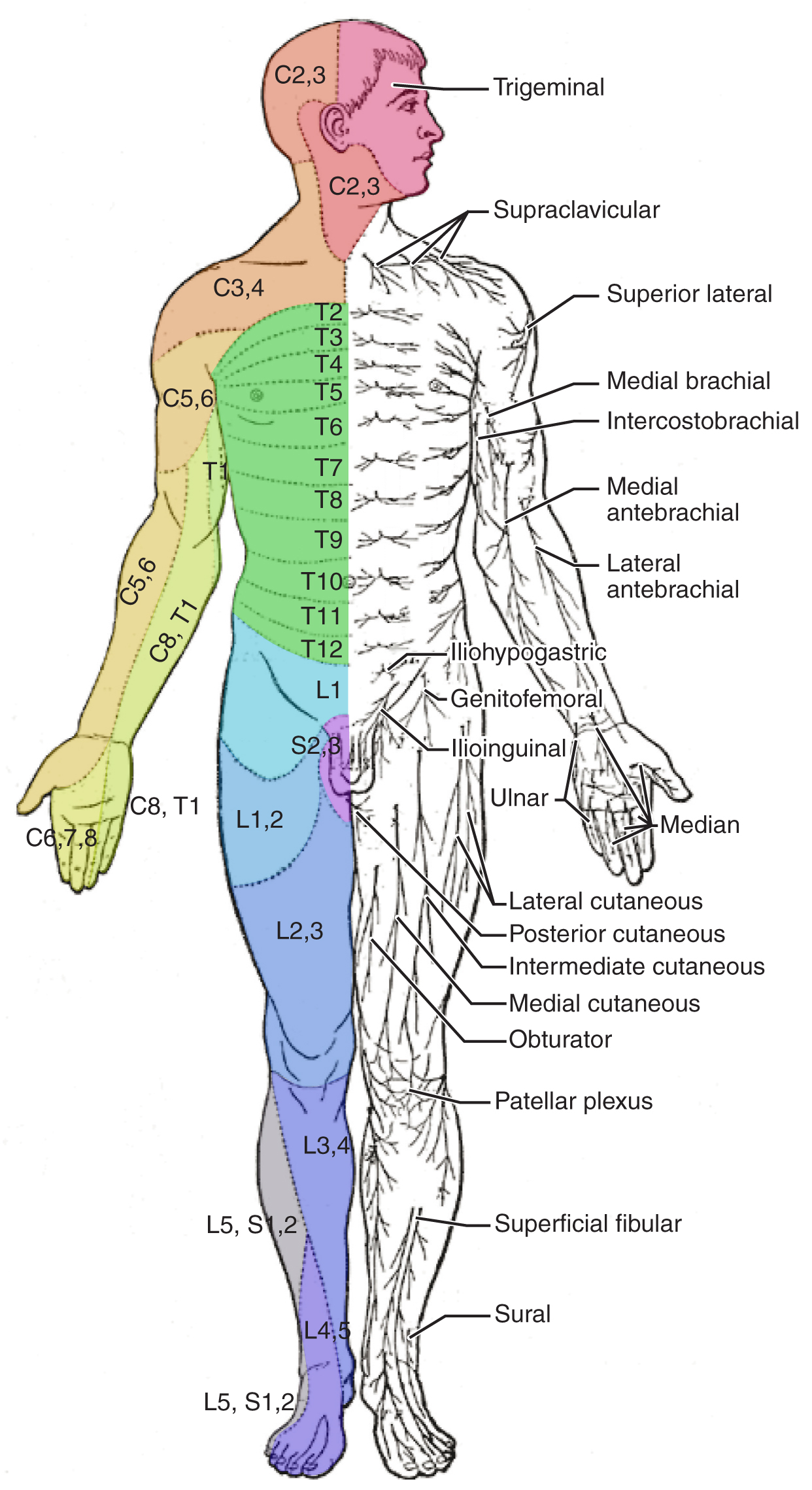
The Sensory and Motor Exams · Anatomy and Physiology
File:Regions of Human Body.jpg. Size of this preview: 681 × 599 pixels. Other resolutions: 273 × 240 pixels | 545 × 480 pixels | 872 × 768 pixels | 1,178 × 1,037 pixels. English: Caption: The human body is shown in anatomical position in an (a) anterior view and a (b) posterior view. The regions of the body are labeled in boldface.

Solved se the appropriate terms/names to describe body
First is the transverse plane, (also called the horizontal plane), which divides the body into top and bottom. In anatomical position, transverse planes are parallel to the ground. The second is the coronal plane, which is a vertical plane that divides the body into the front and back sections. If you do a "belly flop" into the water, you.
.jpg)
Unit I Language Of Anatomy ProProfs Quiz
The ears are referred to as the auricle or otic region. The nose is referred to as the nasal region. The mouth is referred to as the oral region. The chin is referred to as the mental region. The neck is referred to as the cervical region. The trunk of the body contains, from superior to inferior, the thoracic region encompassing the chest.

Body Regions Anatomy Anatomy organs, Anatomy, Anatomy and physiology
13 terms tylerdylan1995 Preview Anterior/Posterior Body Regions (labeling) 40 terms sidn3yparish Preview Terms in this set (23) frontal What is 1? orbital What is 2? buccal What is 3? deltoid

Anatomical regions, dr. madden YouTube
Distinguish between the posterior (dorsal) and the anterior (ventral) body cavities, identifying their subdivisions and representative organs found in each. Describe serous membrane and explain its function. Anatomists and health care providers use terminology that can be bewildering to the uninitiated. However, the purpose of this language is.
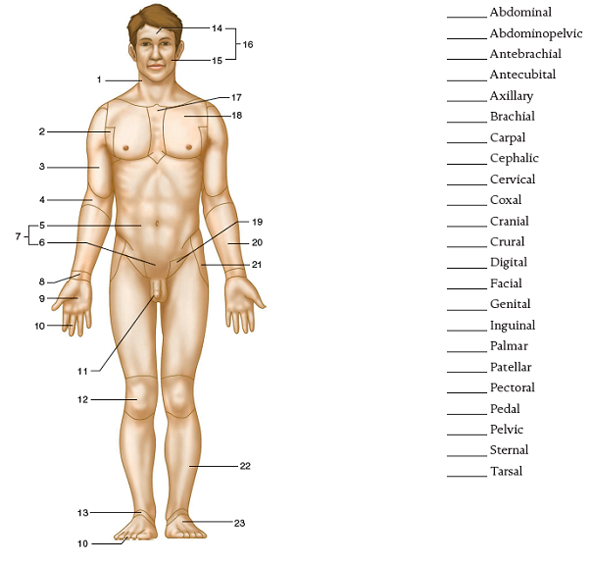
Solved Body RegionsLabel the body regions by placing the numbe
Here's a list of the axial body's main regions: Head and neck Cephalic (head) Cervical (neck) Cranial (skull) Frontal (forehead) Nasal (nose) Occipital (base of skull) Oral (mouth) Orbital/ocular (eyes) Thorax Axillary (armpit) Costal (ribs) Deltoid (shoulder) Mammary (breast) Pectoral (chest) Scapular (shoulder blade) Sternal (breastbone)

OpenStax CNX Body anatomy, Human body anatomy, Anatomy and physiology
The regions of the body are labeled in boldface. A body that is lying down is described as either prone or supine. Prone describes a face-down orientation, and supine describes a face up orientation. These terms are sometimes used in describing the position of the body during specific physical examinations or surgical procedures. Regional Terms

PPT Human anatomy PowerPoint Presentation, free download ID1197335
Body Regions Labeling Label the Regions of the Body - Anterior Side Descriptions The cranial region or cephalic region is the head and the skull The forehead is referred to as the frontal region. The eyes are referred to as the orbital or ocular region. The cheeks are referred to as the buccal region.

Anatomical Transparency Acetate of the Specific Body Regions
BODY REGIONS QUIZ by jfischer 502,749 plays 45 questions ~1 min, 44 sec English 45p More 230 3.87 (you: not rated) Tries Unlimited [?] Last Played November 28, 2023 - 03:35 am There is a printable worksheet available for download here so you can take the quiz with pen and paper. From the quiz author body regions quiz- Bio 2 Remaining 0 Correct 0

Classification of body regions. Clinical findings were classified into
This illustration labeled regions of the human body show an anterior and posterior view of the body. Regions The cranial region includes the upper part of the head while the facial region includes the lower half of the head beginning below the ears. The forehead is referred to as the frontal region.
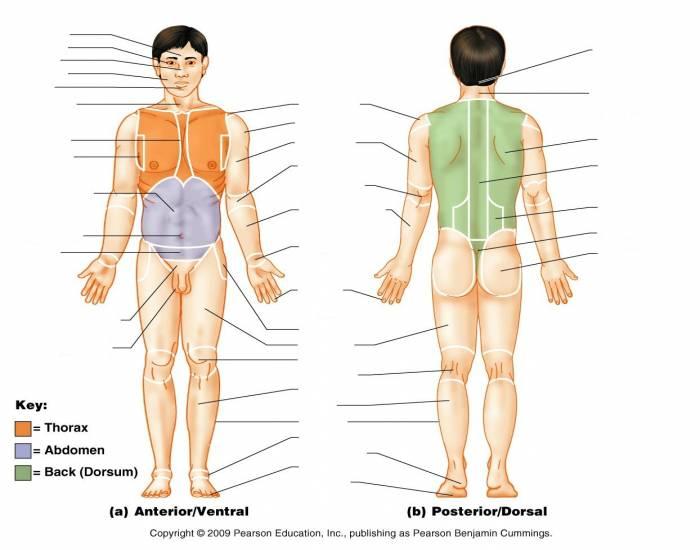
AAP Lab 1 Ex 1, 2, 3 Drost/Wiley Flashcards Easy Notecards
Anatomical Terminology: Relative Position By Barbara Liang In this interactive learning activity, learners review the terms used to describe relative position of body parts in order to have a common set of words to describe their position. Check out our video on relative position: https://bit.ly/2kTXujp Watch Now 244 1.2m More
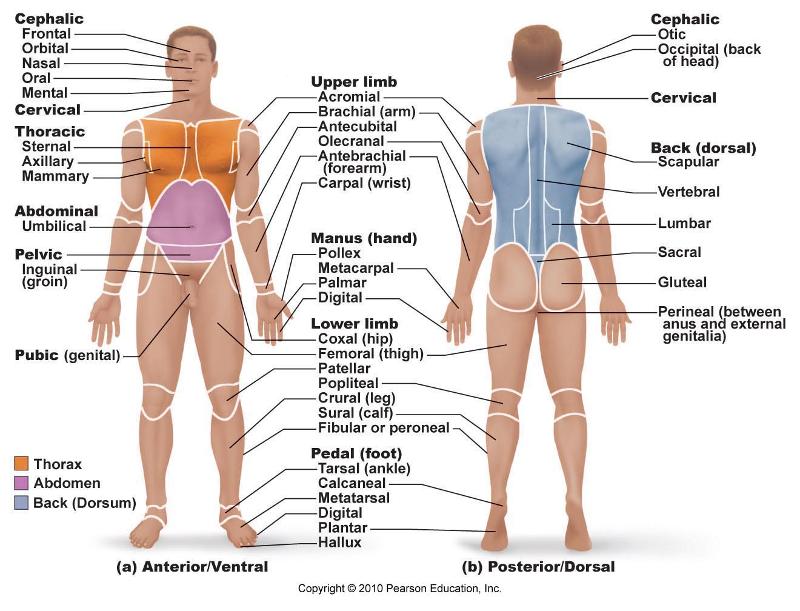
STUDY GUIDE chapter 1,2,3 Flashcards Easy Notecards
Broadly speaking, the body can be split into two primary regions: the axial, and the appendicular. However, within these two regions are several sub-regions. And within those sub-regions, are even more sub-regions. Agh! When we think of it like this, it can all start to seem the opposite of easy to learn. But don't worry.

Human Body Diagram Not Labeled kMusic
Label the Body Regions This worksheet is used with a beginning anatomy unit that discusses anatomical terminology and body regions. I no longer use a textbook for this course, so many of the handouts can be completed without other resources.
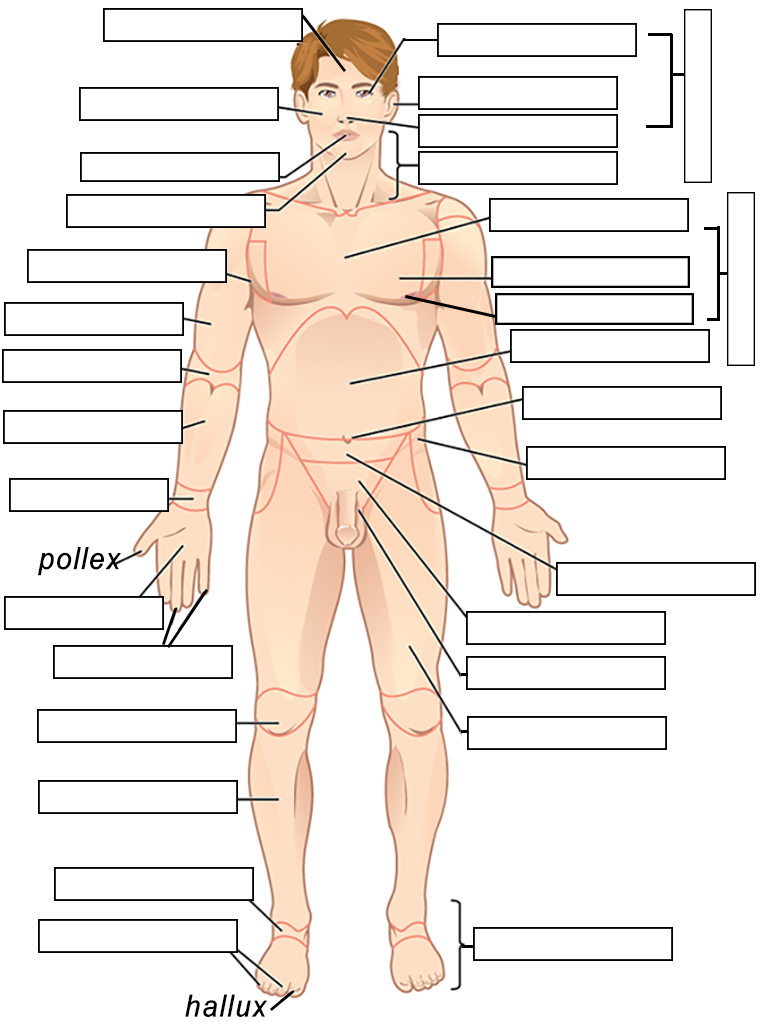
32 Label Of The Body Labels Design Ideas 2020
First is the transverse plane, (also called the horizontal plane), which divides the body into top and bottom. In anatomical position, transverse planes are parallel to the ground. The second is the coronal plane, which is a vertical plane that divides the body into the front and back sections. If you do a "belly flop" into the water, you.
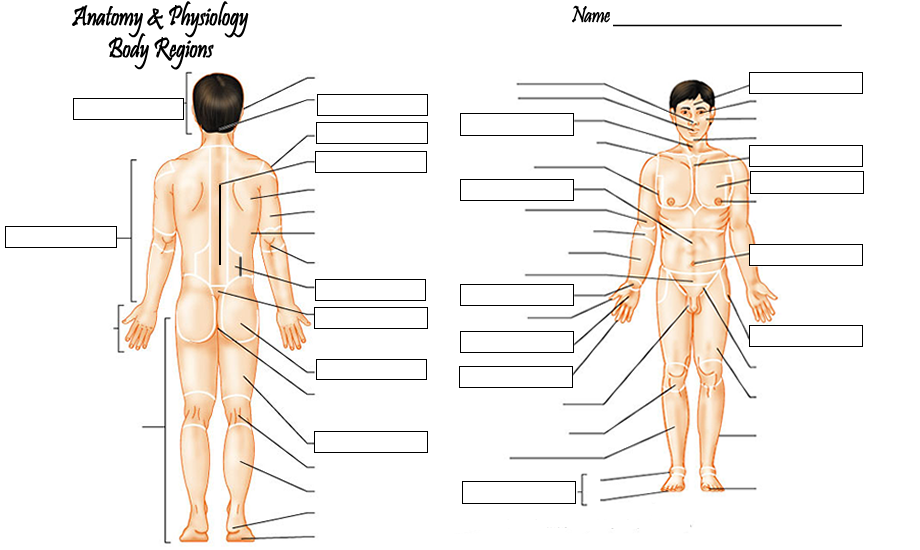
review unit 1 Dr. Hunter's Anatomy and Physiology
The goal of this module is to help you learn the terms used to describe the anatomical regions of the body. Each anatomical region is labeled with two terms: The first term used is the anatomical adjective used to describe the region, and the second term (in parentheses) is the common term.
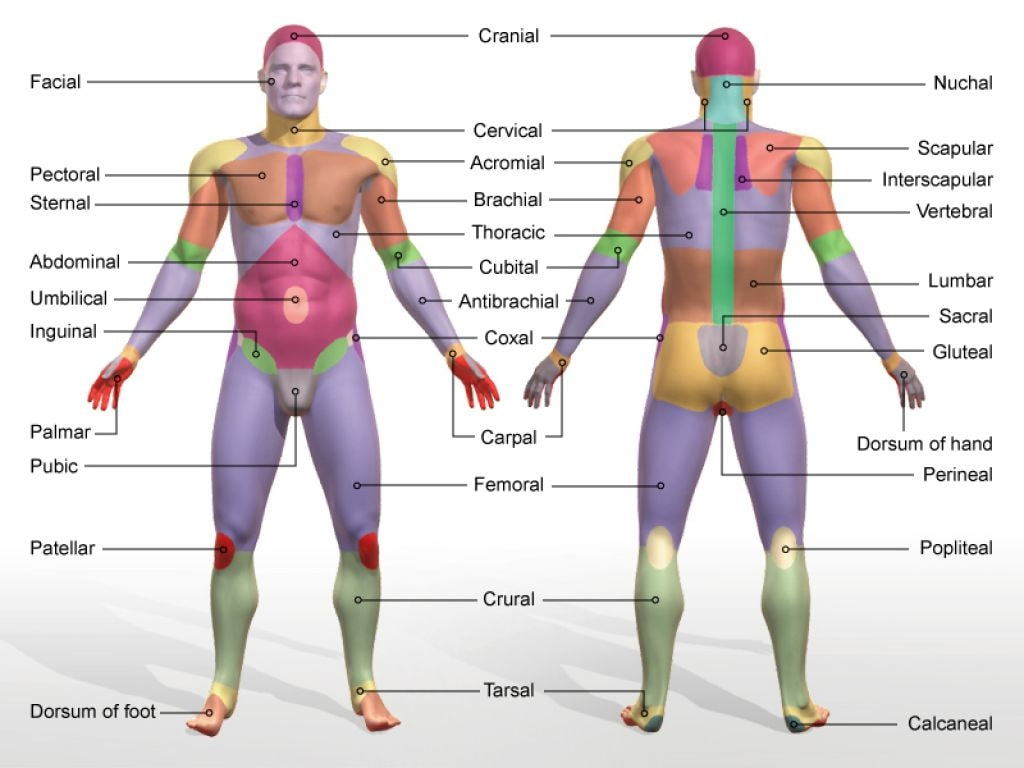
Unit THREE Structure & Function of the Body MR. LESIUK ANATOMY
Figure 1.2.1 1.2. 1 : These two people are both in anatomical position. (CC-BY, Open Stax ) When referencing a structure that is on one side of the body or the other, we use the terms "anatomical right" and "anatomical left.". Anatomical right means that the structure is on the side that a person in anatomical position would consider.